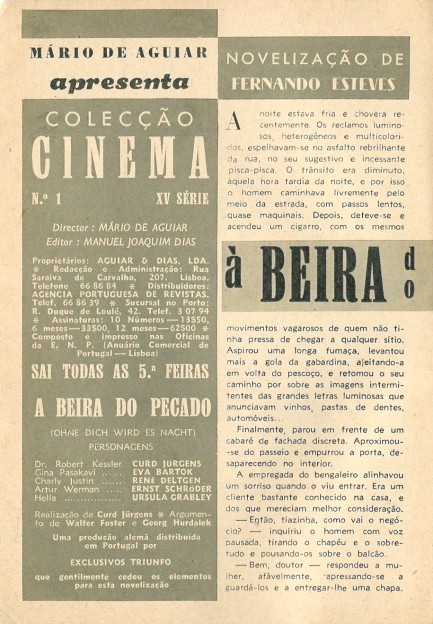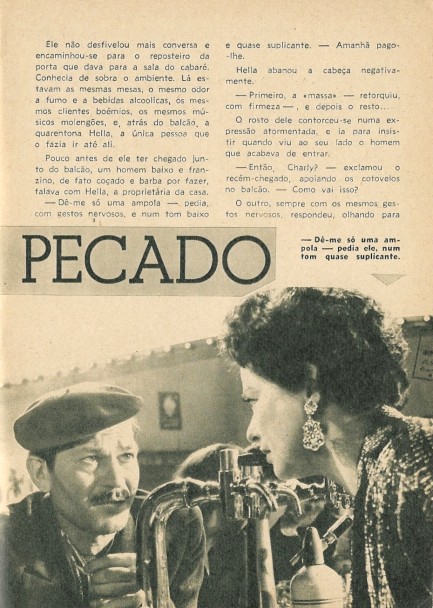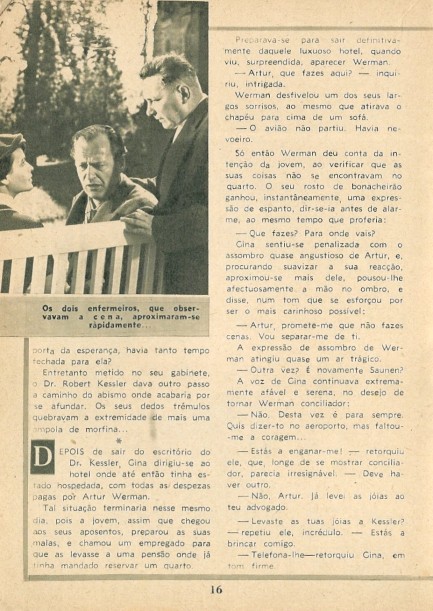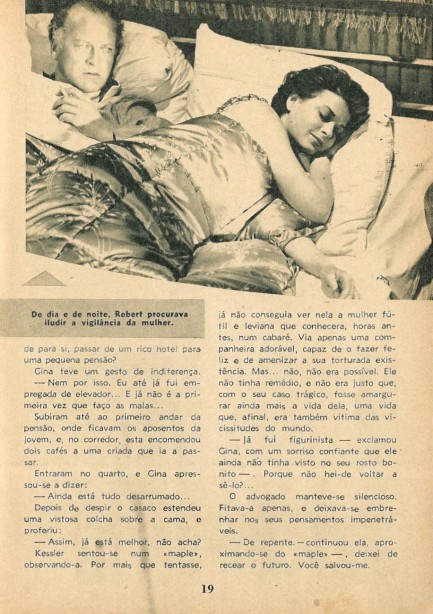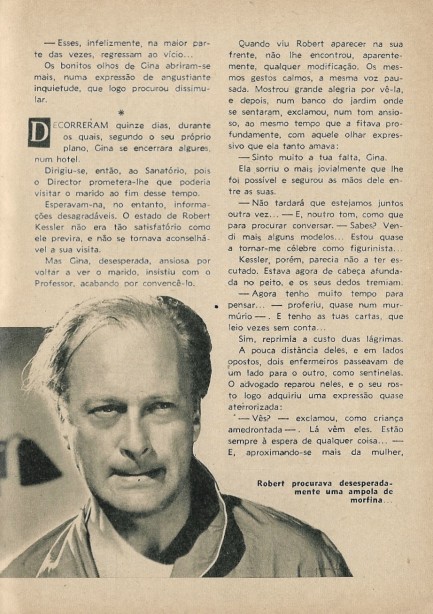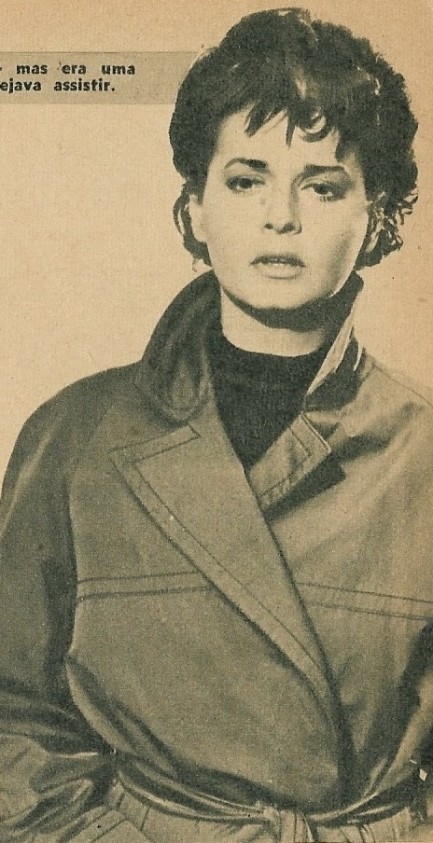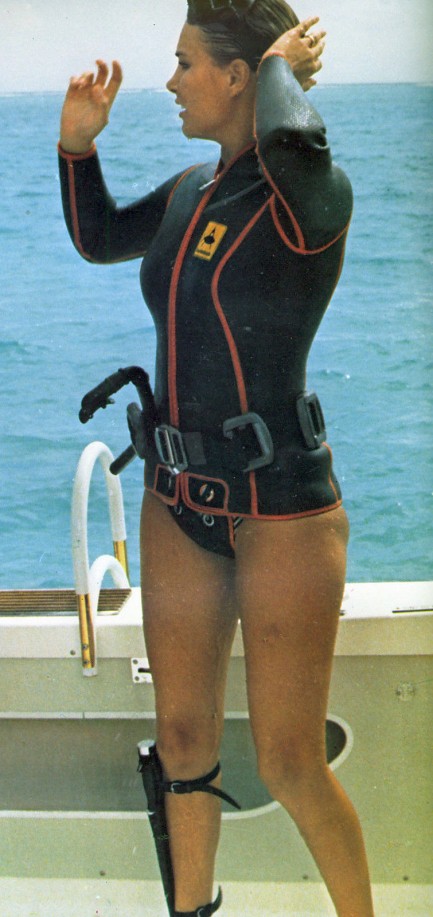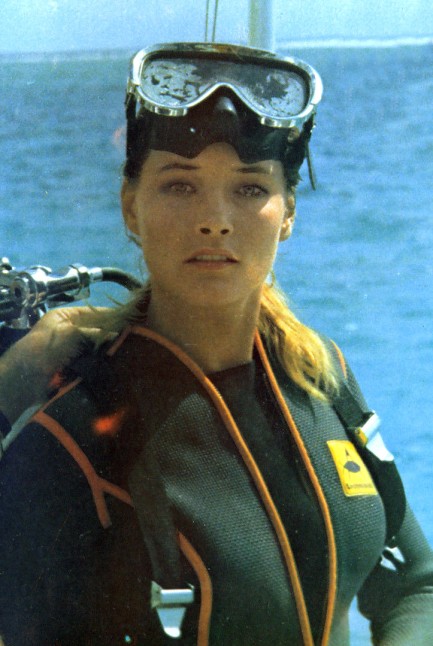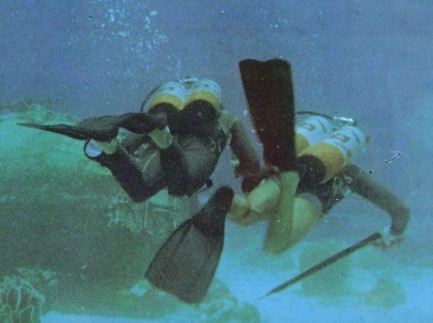 I'm going to punish you with the metric side so you understand that this was no arbitrary decision. 
Covers featuring corporal punishment aren't rare in mid-century fiction. This one, though, for Helene Eliat's 1951 novel Arena of Love, caught our eye because of the ruler, which hopefully it isn't one of those with a metal strip. Eliat was a German writer who originally published this as Saba besucht Salomo, or “Sheba visits Solomon,” in 1930. It was soon translated into French and English, so it's a significant book, possibly her only one. We aren't curious enough to read it, but it's apparently about a problematic love affair. The art on this Lion paperback edition is uncredited.
 Honey—no more excuses! I wait for this day all year and I expect you out of those clothes this instant. 
This is an amusing cover for Ludwig Lewisohn's 1949 novel Anniversary, which is about a business anniversary and birthday, not a marital one. It's a smalltown family drama built around a patriarch, several patience-taxing people in his life, and their scandals. The German born Lewisohn was a major author in his day, a bit forgotten now, but who published forty books of various sorts while also working as a drama critic, editor, and college professor. He didn't write pulp style literature, but we couldn't resist sharing this art. Unfortunately it's uncredited.
 With her new progressive lenses she can finally shoot accurately near and far. 
Austrian actress Hennelore Auer sees with new clarity exactly who she plans to ventilate in this fun promo photo made for her 1968 spy flick X: Drei blaue Panther, aka Kill Panther Kill. She acted in more than thirty films, mostly in West Germany, between 1960 and 1972, including Kommissar X - Drei goldene Schlangen, aka Three Golden Serpents, and Willy, der Privatdetektiv. This image came from the West German film magazine Film Kurier.
 Nygren and friends teach moviegoers all about natural selection. 
We'll return to paperback covers tomorrow, but for the moment we're running with the same sort of material we posted a couple of days ago, because as the weather warms thoughts naturally turn to sensual pleasures. We can't think of a movie more sensual than Emmanuelle IV. Set in our planet's most sensual country, steamy Brazil, it was the entry in the Emmanuelle series that ushered original lead Sylvia Kristel out the studio gate, and brought in the first of several new Emmanuelles, in this case Swedish actress Mia Nygren. This West German poster, on which the film is titled Die orgien der Emmanuelle, or “the orgies of Emmanuelle,” caught our eye because—well, for several reasons—but mainly because Nygren is pushed into the background by Camella Donner, aka Camella Thomas. Why is that so interesting? Because she isn't in the cast. She probably wasn't even on the same continent. We guess the West German distributors wanted to sex up the poster a bit more. Donner would have been a great addition to the film, but even without her it was fun. Ridiculous, stupid, carnivalesque fun. They don't make 'em like that anymore. Emmanuelle IV premiered in West Germany today in 1984. Bonus imagery below.
 
 It's the same old story. Take a trip to the tropics, lose every bit of self control. 
We ran across this Italian locandina for the shot-in-the-Dominican Republic sexploitation flick Il pavone nero, known in English as Voodoo Sexy, and thought it made a nice alternate promo to the one we posted years back. The movie premiered in Italy today in 1975, and with a title like Voodoo Sexy you know what it's about: white skin + tropical heat = a total loss of inhibitions. Flicks of this ilk were an unofficial subgenre of ’70s and ’80s cinema. We love them, and you know why? Because they aren't wildly inaccurate in terms of northerners going crazy down south. The star of this one was German actress Karin Schubert, and that's the other reason we revisited the film—it gave us an excuse to share the photo of her below. Hope it helps you get over hump day. 
 Elke snags seashells by the seashore. 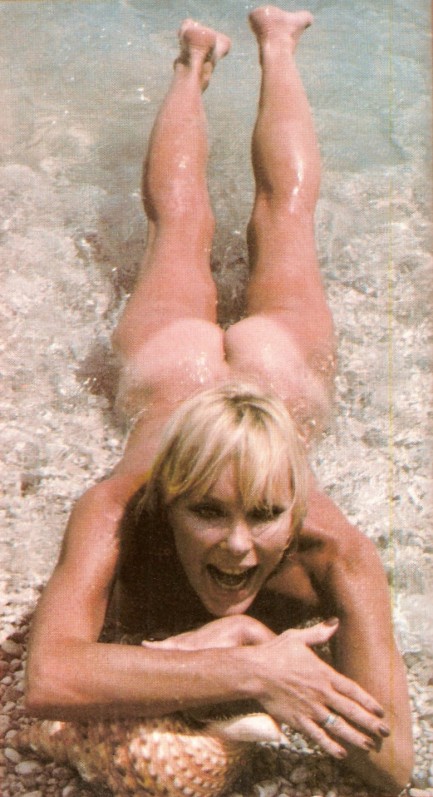
German star Elke Sommer shows her beach bum in this shot made during a photo session in Haiti in 1978, and first published in the the U.S. magazine Eros. Sommer is another of those performers who was huge during her time, but doesn't have what today most film buffs consider many quality efforts among her nearly one hundred movies. A Shot in the Dark and The Prize are probably the best remembered from her mainstream output, while cult fans tend to gravitate toward Lisa and the Devil, The Wrecking Crew, and of course Deadlier Than the Male, which we've seen and written about more than once (feel free to click its keywords just below). We're going to explore a few more of those hundred movies of hers, so maybe we'll uncover a treasure the way Sommer has uncovered the giant conch shell she's hanging onto.
 Palmer demonstrates proper usage of the most important bad girl accessory. 
Femmes fatales (that's how the French spell it, and they should know) need a lot of accessories. Among the most important are eyes that smolder, a walk that slinks, dresses that cling, a mouthful of lies, a small pistol, and a strong liver, but is there any accessory more important than the cigarette? We don't think so. German actress Lilli Palmer makes the most of a cigarette in this striking promo image that's undated but probably from the early 1940s. Neither of us have ever smoked, nor seriously dated a woman who did, but there's no denying it looks good on Lilli.
 The fundamental things apply. 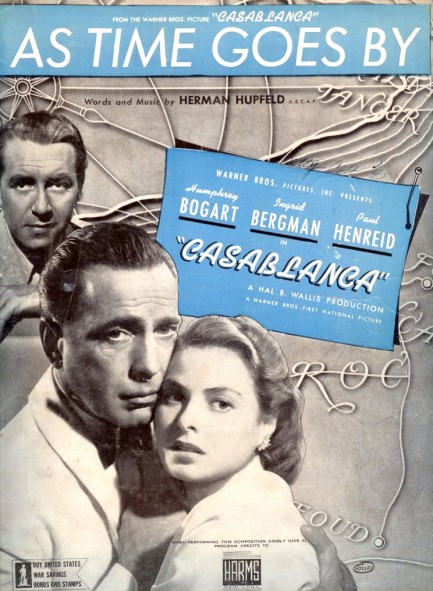
Here’s something nice we ran across on an auction site. It’s a piece of sheet music for “As Time Goes By”, which is a song written by German composer Herman Hupfeld and sung by Dooley Wilson’s character Sam in 1942’s Casablanca. The tune is inextricably identified with the film, but it was actually written for the 1931 Broadway show Everybody’s Welcome, where, in its complete form, it becomes clear the song is just as much about stress as about romance. You wouldn’t know that of course, because you don’t know the lyrics—really, who does? But today’s your lucky Monday—you can brush up on the words here. Just remember these two music fundamentals: if you sing, please do so from the diaphragm; and if you sing badly, blame it on booze.
 They're going to salvage a lost cargo come hell or Haie water. 
We had a foreign double feature last night, following up La tentación desnuda with Haie am Todesriff, which was originally Italian made as Bermude: la fossa maledetta. Known in English as Cave of Sharks, it premiered in Italy in June 1978 and opened in West Germany today the same year. It is, to be succinct, a Jaws knock-off made with less imagination and less budget. Set on and around the fictive island of San Domingo, which is somewhere near Bermuda, the movie stars Andrés Garcia as a member of an oceanographic expedition who turns up with amnesia six months after his boat goes missing and his colleagues are lost. During those six months that Garcia was presumed dead, his brother tried to move in on his girl Janet Agren—for which he cannot in any be blamed—but with his bro's reappearance there's now a budding love triangle.
Later a plane crashes near San Domingo under strange circumstances with an illegal cargo, sending organized crime figures into to action to recover their loot. Under false pretenses, they hire Garcia, sending him right back into the dread sector of ocean from he'd been fished. He discovers strange, mystical sharks, and thinks they might be the key to getting his memory back. He loses all interest in the crooks' treasure, but they think he's found it and is withholding it. Trouble looms. Does all this sound dumb? You aren't wrong. And the bad plot isn't helped by bad acting, bad action, and incredibly bad miniature work. This one isn't worth your time, even with Janet Agren in the co-starring role. But to make reading this worthwhile, we've added a nice Agren shot to the promos below.

|
 |

The headlines that mattered yesteryear.
1945—Churchill Given the Sack
In spite of admiring Winston Churchill as a great wartime leader, Britons elect
Clement Attlee the nation's new prime minister in a sweeping victory for the Labour Party over the Conservatives. 1952—Evita Peron Dies
Eva Duarte de Peron, aka Evita, wife of the president of the Argentine Republic, dies from cancer at age 33. Evita had brought the working classes into a position of political power never witnessed before, but was hated by the nation's powerful military class. She is lain to rest in Milan, Italy in a secret grave under a nun's name, but is eventually returned to Argentina for reburial beside her husband in 1974. 1943—Mussolini Calls It Quits
Italian dictator Benito Mussolini steps down as head of the armed forces and the government. It soon becomes clear that Il Duce did not relinquish power voluntarily, but was forced to resign after former Fascist colleagues turned against him. He is later installed by Germany as leader of the Italian Social Republic in the north of the country, but is killed by partisans in 1945. 1915—Ship Capsizes on Lake Michigan
During an outing arranged by Western Electric Co. for its employees and their families, the passenger ship Eastland capsizes in Lake Michigan due to unequal weight distribution. 844 people die, including all the members of 22 different families. 1980—Peter Sellers Dies
British movie star Peter Sellers, whose roles in Dr. Strangelove, Being There and the Pink Panther films established him as the greatest comedic actor of his generation, dies of a heart attack at age fifty-four.
|

|
|

It's easy. We have an uploader that makes it a snap. Use it to submit your art, text, header, and subhead. Your post can be funny, serious, or anything in between, as long as it's vintage pulp. You'll get a byline and experience the fleeting pride of free authorship. We'll edit your post for typos, but the rest is up to you. Click here to give us your best shot.

|
|






